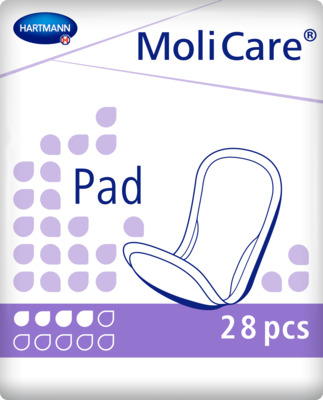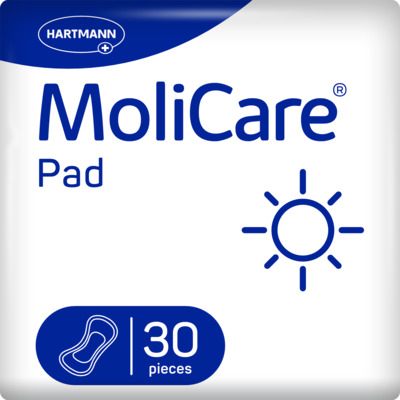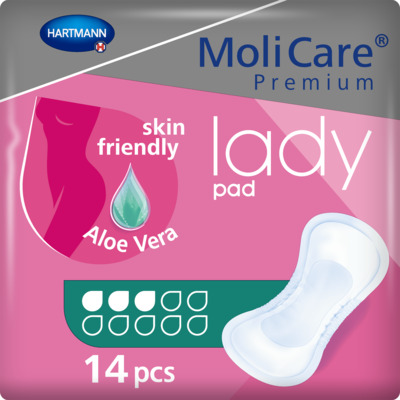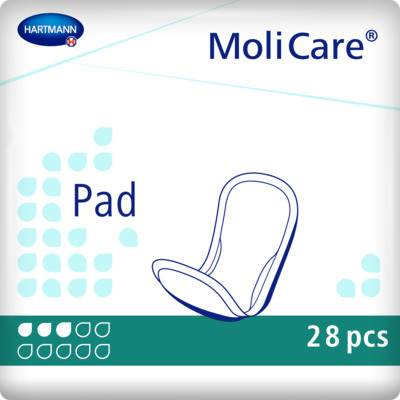Incontinence Advice
Adriennes Story About Dealing With Her Husbands Dementia and Incontinence
Incontinence isn’t the first thing we
think of when we talk about dementia but it’s more common than you might
think. For some people, the neurological messages between the brain and
bladder or bowel don’t work properly. This can mean they don’t recognise their
bladder is full, or they don’t have enough control to get to the toilet before
emptying their bladder.
Adrienne’s husband Jeff was diagnosed
with dementia 4 years ago and wasn’t expecting the unwelcome incontinence
problems that came along with it.

Adrienne's Story
“Jeff’s problem was not remembering quickly enough that he needs to go to the toilet during the day and having frequent accidents during the night.
We tried to manage it ourselves to begin
with by looking out for signs he needed the toilet and setting the alarm during
the night to take him to the toilet. However, this became increasingly
challenging especially at night as he was frequently soiling the bed.
This was upsetting and confusing for him
and meant that I had to strip the bed, which resulted in very broken sleep for
me as it always took me a while to fall back to sleep as I was waiting for the
next accident. As a carer I was exhausted and had lots of additional
washing to do in the morning.”
How You Can Help Someone With Dementia
- Help the person identify where the toilet is such as using a sign or picture on the bathroom door.
- Let them know that the toilet is free by leaving the door open so they can see that it’s not in use.
- Make it easy for the person to make their way to and use the toilet. Think about lighting, handrails and a raised toilet seat may help.
- Choose clothing with easy fastenings, elasticated waists instead of zips and Velcro fastenings instead of buttons.
- Try incontinence pants that feel like normal underwear but are designed to be disposed of after an accident.
In Adrienne’s situation, it was MoliCare® pull-up pants that made the difference after trying different pads and pants from the supermarket which didn’t really manage the urine.
"The MoliCare pull-up pants are much better for Jess as they look like normal underwear, so he doesn't get upset wearing them. He can pull them up and down like normal pants, which helps him maintain his dignity. We want him to keep his independence for as long as possible and minimise what is already a confusing world for him"
Talking About Incontinence
Talking about incontinence can be hard, but by opening up and seeking help, you’ll find that you’re not alone. Lots of people care for loved ones with incontinence and when combined with dementia or other conditions it can feel like an ongoing battle.
Step 1: Talk to others
Talking to others can have a positive effect on both your relationship and self-confidence, discuss your worries with your loved ones who can then support you if you need it.
Step 2: Seek out information
Help is out there, and there is no need to feel in any way embarrassed. Whether it’s HARTMANN, Bladder and Bowel UK or your local GP, we’re here to help you.
Step 3: Find a solution that works for you
Maybe the thought of wearing pads is
scary, maybe you don’t know whether a pad, pant or slip would be best, HARTMANN
will work with you to find the best solution for you and your loved one.
Talk to us today on 0800 028 9490

MoliCare Pad 4 Drops
<h2>Handy MoliCare Pad 4 Drops to Carry on the Go</h2> <p>Our MoliCare® Pad 4 Drops are an essential product for those experiencing slight incontinence, allowing you to regain control and live your busy and active life without the interference of bladder weakness. Designed for both men and women, this pad for men and women offers exceptional dryness and protection, ensuring your comfort and confidence.</p> <h2>‘Barely There’ Reassurance and Reliability</h2> <p>The MoliCare® Pad 4 Drops are slimline, discreet, and adjusted to fit your body seamlessly. It fixes securely inside your underwear, providing a ‘barely there’ comfort feel. With its soft and skin-kind fabric, along with a wide adhesive fixing strip on the backsheet, you can go about your day with the assurance of being protected against leakages.</p> <p>The absorbent core effectively prevents your skin from becoming too moist, while the elastic anti-leak edging adds an extra layer of security and peace of mind. Say goodbye to any worries about odours, as the MoliCare® Pad 4 Drops also neutralises odours to keep you fresh and confident throughout the day. Don't let incontinence hold you back from living life to the fullest.</p> <p>Ordering your MoliCare® Pad 4 Drops is hassle-free, as we offer fast and discreet delivery direct to your door. With our price match promise, you can trust that you're getting the best value for your money. Plus, enjoy free delivery on all orders over £40.</p> <p>If you need assistance in finding the perfect incontinence product for your needs, our friendly customer care team is here to help. Don't hesitate to reach out to us at 0800 028 9470. Take control of your life with the reliable protection and comfort of the MoliCare® Pad, alongside other <a href="https://www.hartmanndirect.co.uk/incontinence-products/incontinence-pads" style="color:#0563c1; text-decoration:underline">incontinence pads</a>.</p> <p> </p>
MoliCare Pads for Day
<h3>Incontinence pads for protection during the day </h3> <p>Even slight bladder weakness can be a burden in everyday life. There is a simple and affordable solution for this: MoliCare® Pad Day delivers discreet, reliable protection that helps you manage life’s daily challenges. </p> <p>The highly absorbent core inside the incontinence pads quickly locks away urine to ensure a pleasantly dry feeling on the skin. At the same time, it neutralises unpleasant odours. </p> <p>MoliCare® Pad Day are designed for discreet protection during the day. You can recognise the daytime incontinence product by the sun symbol on the packaging. They complement MoliCare® Pad Night incontinence pads which provide reliable protection at night. </p> <h3>Who is MoliCare® Pad Day suitable for? </h3> <p>MoliCare® Pad Day incontinence pads are suitable for people with mild bladder weakness. They leak anywhere from a few drops to 100 ml of urine between visits to the toilet. </p> <p>Incontinence pads are suitable for active women and men users whose mobility is not restricted. They can go to the toilet independently and without assistance. </p> <h3>Cheap incontinence products: comfortable, discreet protection </h3> <p>The incontinence pads have a highly absorbent core and odour control to keep you feeling fresh and comfortable. Thin and flexible, MoliCare® Pad Day are designed to be discreet, invisible under your clothing. Thanks to the wide adhesive strip, they remain securely in place even during sport. The incontinence pads are made from soft, breathable material so you feel comfortable all day. </p> <p>You usually need no more than two MoliCare® Pad Day incontinence pads during the day and one MoliCare® Pad Night incontinence pad for undisturbed sleep. This gives you a low cost yet high-quality round-the-clock supply of incontinence pads from HARTMANN. </p> <h3>We are HARTMANN </h3> <p>MoliCare® is HARTMANN’s extensive range of continence care. For over 40 years, we have been developing effective, reliable products that help people manage the challenges of living with incontinence. Our aim is to provide the right solution for every need. </p>
MoliCare® Premium Lady Pad 3 Drops
<h2>Lightweight Incontinence Solutions</h2> <p>The MoliCare® Premium Lady Pad 3 Drops is the perfect solution for women who are looking for a slim, discreet and comfortable way to manage slight bladder incontinence situations. The pad is small and lightweight, so it's easy to carry with you on the go. And the odour neutralisers help to keep you feeling fresh and confident all day long.</p> <p>With a fast and reliable delivery, you can apply your MoliCare® Premium Lady Pad 3 drops in next to no time. With their compact appearance, they are easy to apply and are barely noticeable when fitted under your underwear. For extra skin-friendly protection, we equip these products with Aloe Vera to maintain a healthy skin, as well as absorbent and secure technology. It is truly one-size fits all with this range!</p> <h2>Maintain peace of mind</h2> <p>These lady pads contain 14 pieces per bag, are set at an affordable pricing, and will prevent leakages, maintaining peace of mind in all social situations.</p> <p>If you require additional information, do not hesitate to get in touch with our reliable customer service team, who are ready on hand to answer your questions. If you're looking for a reliable pad that will help you stay dry and comfortable, the MoliCare® Premium Lady Pad 3 Drops is a great option. Order yours today!</p>
